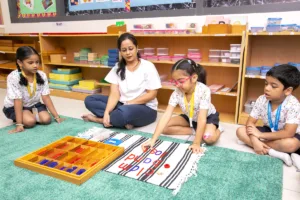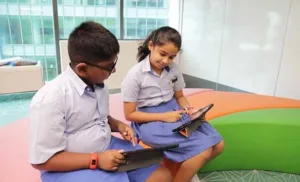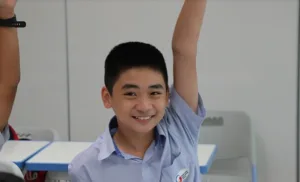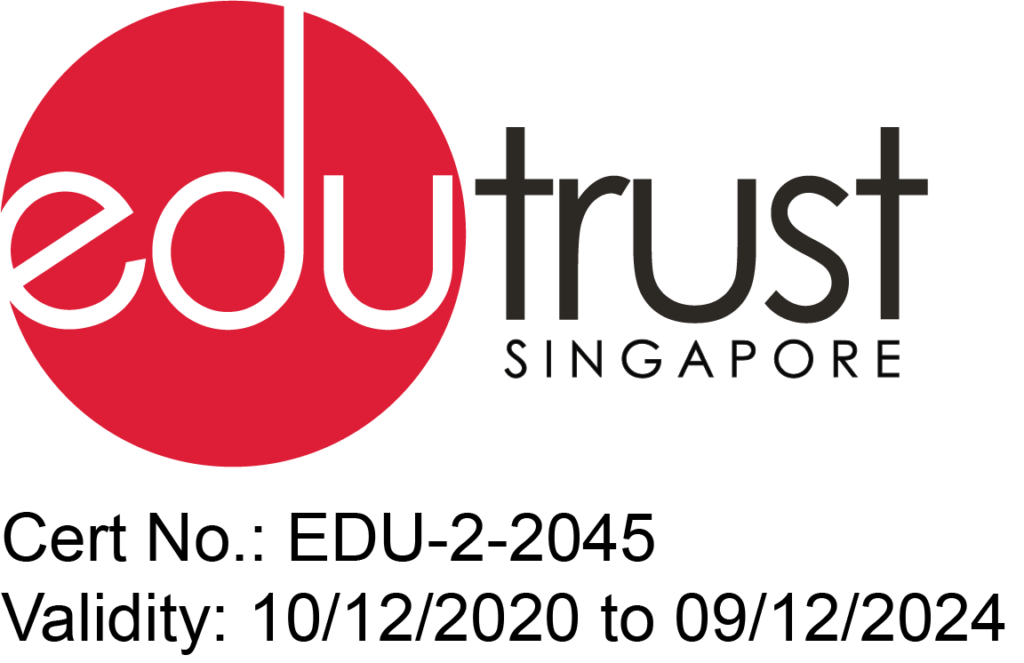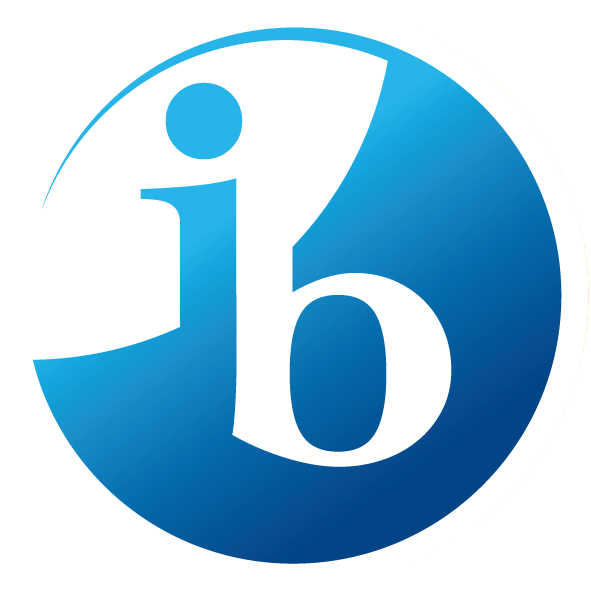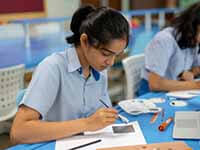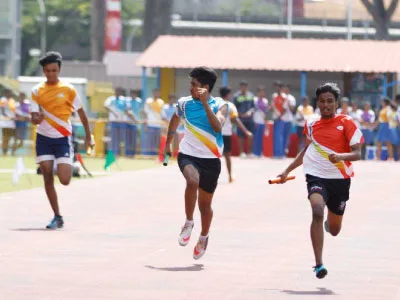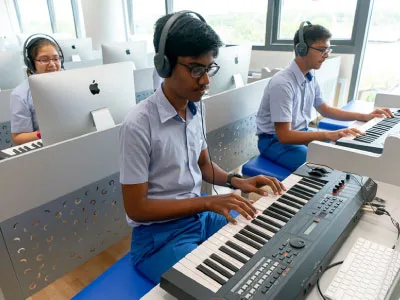Another term has come to a close, and students and parents wait — either with eager anticipation or anxious dread — for grade reports to be issued. Too often, families are disappointed by the results. The rigours of an international school in Singapore — assignments, homework and exams — can seem overwhelming, especially at the secondary schoollevel when students are preparing for university. But even for primary schoolers, it’s not too early to map out a plan to improve their marks. Developing good study habits as early as possible will prepare students to excel at university and beyond. Here are nine tried-and-true tips for getting better grades.
1. Set Up a Realistic Study Schedule
It’s often second-nature to assume we have to spend hours on end in the library or to cram for an exam one or two nights before the test. Instead of working harder, try working smarter. Research shows that sleep-deprived studying and other unhealthy patterns don’t yield the best results. Educators recommend spending a short period of time each day reviewing lessons or preparing for exams. They suggest that for every 45 minutes of study time, students should take a 15-minute break doing something they enjoy.
2. Focus on Weak Areas First
When students are struggling with a particular subject, it can be tempting to put it to the side until later, giving priority to subjects that come easily to them. Study experts recommend that you do just the opposite. Begin by focusing on the material that poses more of a challenge before tackling your other subjects. Getting difficult tasks out of the way first ensures these areas aren’t overlooked and can improve overall motivation.
3. Discover Your Learning Style
Because there is not a “one-size-fits-all” approach to learning, international schools in Singapore follow curricula that address different learning styles. Students who are visual learners like to refer to notes, charts and diagrams when reviewing course material. Kinesthetic or tactile learners flourish with a hands-on approach to learning. If you’re an auditory learner, consider reading out loud to yourself when studying. Knowing how you best grasp information and concepts will help you develop study strategies that fit your learning style.
Additionally, most students can benefit from creating visual illustrations of text, and vice versa. For example, interpreting a graph and putting it into words tests their comprehension and can make learning more meaningful. Similarly, designing an infographic from a large chunk of text enables students to extract the most important points from what they’ve read.
4. Alternate Between Subjects When Studying
To enhance their understanding, students can approach their coursework similar to the way they might approach a fitness regimen. Athletes usually incorporate different exercises into one workout session. Similarly, students can rotate among various topics in one study period. For instance, they might begin with a Science lesson on water conservation. Next, they might work on Maths problems involving measurements, then read a chapter on community efforts to preserve the environment. Covering these three subjects in one study session allows students to make meaningful connections between subjects, rather than looking at them in isolation. In the example just mentioned, they can see how the Science lesson relates to the Social Science lesson and how they can use their Math’s skills to understand large numbers, such as the amount of clean water needed to sustain communities and ecosystems.
Another similar, proven technique for better grades is to elaborate on broad concepts and compare and contrast them. When trying to explain a broader concept, encourage your child to provide as much detail as possible. Next, students can compare different concepts, widening their understanding by making connections between two ideas.
5. Test Your Memory
One of the most common study techniques employed by students worldwide is to simply review textbooks and class notes. However, challenging your brain by testing your memory will likely be more effective. After all, you won’t be able to use your notes and textbooks for exams. Parents can encourage children to write down as much as they can remember about the subject matter without referring to course materials. Older students can do this on their own by using flashcards or creating their own study guides and sample tests. These “memory tests” can also be fun to do in a group, with peers quizzing each other on critical information.
6. Stay Organized
Staying organized is a challenge for many of us, but it can go a long way toward helping you perform better in school. Having a disorderly desk can make it more difficult to keep track of assignments and school supplies. Keep your school desk and homework area in order. Conduct weekly decluttering sessions to get rid of anything you don’t need and make sure that everything is in the right place. Homework assignments can take much longer to complete when you’re searching for a notebook or a set of flashcards.
Organization applies to time-management, too. A 15-minute study break can easily turn into a 30-minute social media binge if you don’t keep track of time. Use a planner to write down assignments, which you can check off as you complete them. You can use a digital planner or a pen-and-paper one. However, if using your phone to manage time proves to be too much of a distraction, the hard-copy planner may be your best option.
Another way to promote “time-management hygiene” is to limit distractions. If you’re tempted to put your work down every time your phone sends out an alert, consider turning off notifications or putting your device on silent. Additionally, find a quiet place to study, away from younger children and pets.
7. Connect with Teachers
When students approach teachers with any questions or concerns they have about a course, it sends the message that they care about their achievement and want to do their best. If they’re having difficulty comprehending the material, students shouldn’t be afraid to ask for help right away. Another way to connect with their teachers — and the course material — is to answer teachers’ questions and participate in class discussions.
8. Form a Study Group
Getting a group of friends together to study can help students stay motivated, as peers can hold each other accountable to stay on task. Additionally, groups can bring together students of varying ability levels. Those who struggle with a particular subject can benefit from having a fellow group member explain the material. On the other hand, those who are especially proficient in a subject can provide tutoring and encouragement, which can improve their motivation and retention.
9. Celebrate Successes
When your child earns a high grade on a test or shows improvement in a subject, celebrate the accomplishment. Small rewards mark progress toward goals and help students stay motivated to keep working toward their next achievement milestone.
International schools in Singapore have a reputation for offering challenging, well-rounded curricula designed to equip students for long-term success and lifelong learning. Rigorous coursework prepares students to excel in higher education. Parents play a crucial role in helping children discover their learning style and adopt effective study strategies. Using these proven techniques puts students on a path toward better grades, less stress and higher confidence.


